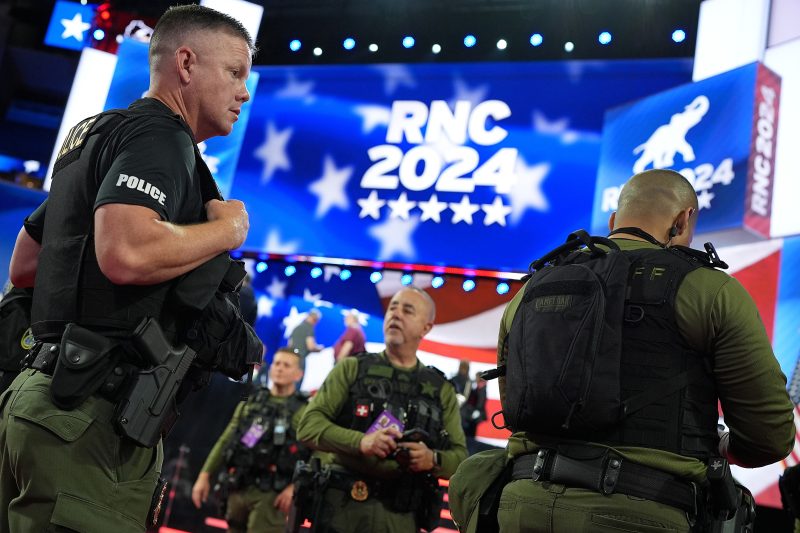The recent shooting incident at a Trump rally has sparked concerns about the security measures in place for political events, especially with the upcoming GOP convention. Despite the tragic event, there have been no changes announced to the GOP convention security plan. This decision has led to mixed reactions from the public, with some questioning the adequacy of the current security protocols.
One of the main arguments in support of maintaining the existing security plan is the need to uphold the democratic values of free speech and open political discourse. Making significant changes to the security arrangements in response to isolated incidents could potentially set a precedent for limiting public engagement with political leaders and events. By striking a balance between security concerns and maintaining an open political environment, the GOP aims to show resilience in the face of adversity.
On the other hand, critics argue that the lack of specific action following a violent incident raises serious questions about the GOP’s commitment to the safety of attendees and public figures. In an increasingly polarized political climate, security measures must adapt to ensure the protection of all individuals at public events. Ignoring the need for enhanced security could jeopardize the well-being of participants and undermine the credibility of the party.
One potential consequence of maintaining the status quo is the possibility of reduced public attendance at future political gatherings. If individuals do not feel safe or protected at such events, they may be less inclined to participate in the democratic process. This could lead to a decline in voter engagement and limit the opportunities for political discussion and debate.
In light of the evolving security threats facing political events, it is essential for the GOP to conduct a thorough review of its current security plan. While it is crucial to preserve the principles of free speech and open dialogue, it is equally important to prioritize the safety and well-being of all individuals involved. By reassessing and potentially enhancing security measures, the GOP can demonstrate its commitment to ensuring a secure and inclusive environment for political engagement.
In conclusion, the decision not to make changes to the GOP convention security plan following the recent shooting incident has sparked a debate on the balance between security and democratic values. Moving forward, it is imperative for the GOP to address concerns about the adequacy of its security protocols and take proactive steps to enhance the safety of attendees and public figures at political events. By prioritizing security without compromising the principles of free speech and open dialogue, the GOP can demonstrate its dedication to fostering a safe and inclusive political environment.
